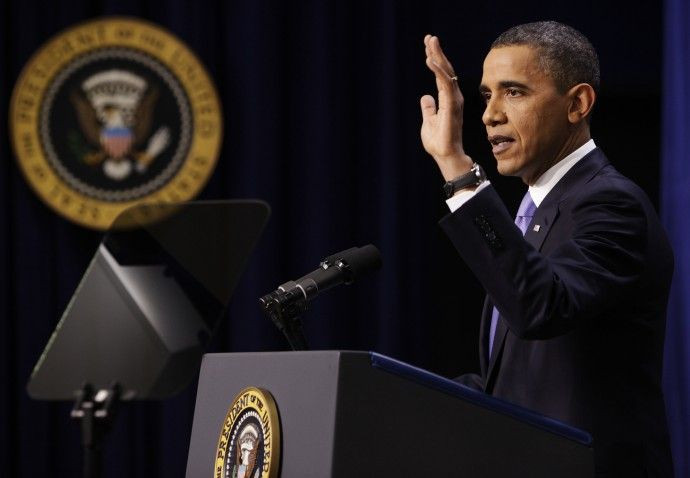This has been a season of progress for the American people: Obama

US president Barack Obama welcomed the US Senate's ratification of the new strategic arms reduction treaty between the country and its former cold-war rival Russia. The President maintained that Wednesday's vote proves that Washington is not headed for 'more partisanship and more gridlock'.
This has been a season of progress for the American people, he said.
That progress is reflecting -- is a reflection of the message that voters sent in November -- a message that said it's time to find common ground on challenges facing our country.
Over the past few weeks the Obama administration passed a package of tax cuts and unemployment insurance and also overturned a 17-year-old law ending the don't ask, don't tell policy. The Senate also passed a food safety bill and is currently attempting to pass the proposed 9/11 health bill. The Congress however, was not able to pass the DREAM Act.
The vote on the START treaty is seen as a major win for the Democrats who suffered a blow in the recent mid-term polls. The President stated that his administration would continue to advance relationship with the Moscow and press for its support on sanctions against Iran.
This is the most significant arms control agreement in nearly two decades, and it will make us safer and reduce our nuclear arsenals along with Russia, he said.
The senate, which ended the 7-day-long debate over the treaty on Tuesday, passed it by 71 to 26 votes on Wednesday. The democrats were joined by 13 Republicans during the vote.
In Moscow, Russian President Dmitry Medvedev also welcomed the ratification of the deal by the U.S. Senate. However, the Russian Duma is unlikely to pass the deal till next spring. The President maintained that Russian lawmakers would carefully study the legal aspects and amendments made to the deal before presenting it to both house of the Russian Parliament.
President Dmitry Medvedev was satisfied with the news that the U.S. Senate had ratified the new START treaty and expressed hope that Russia's State Duma and the Federation Council would be ready to review and ratify this document, a Kremlin spokeswoman, Natalya Timakova, said on Thursday.
The deal would legally bind both countries to limit their nuclear warheads (ready to launch) to 1550 from 2,200 agreed at the 2002 Moscow treaty. A combined limit of 800 deployed and non-deployed submarine-launched ballistic missiles, heavy bombers and intercontinental ballistic missiles will be imposed. It would also allow both sides to conduct 10 short notice on-site inspections of nuclear warheads annually.
© Copyright IBTimes 2024. All rights reserved.




















